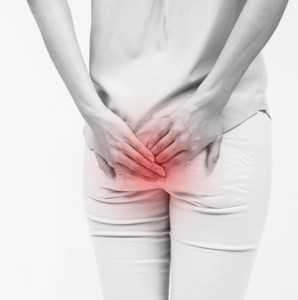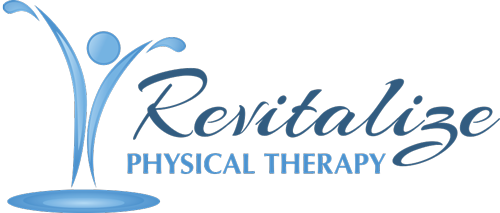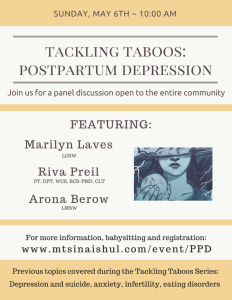
Women, especially those who underwent prolonged labor and straining in the lithotomy position (which produces pressure on the anus and rectum), may encounter hemorrhoids after giving birth. Hemorrhoids are normal vascular structures in the anal canal that ordinarily help with stool control by acting like cushions. However, they can become inflamed or swollen. Internal hemorrhoids are usually painless, and the primary sign is bright red rectal bleeding with bowel movements. External hemorrhoids are usually painful and associated with dark rectal bleeding with defecation as well as swelling near the anus. External hemorrhoids usually resolve spontaneously after several days, often leaving a skin tag remnant.
Pelvic floor therapists can educate women who experience hemorrhoids on proper care, which includes sitz bath, hot or cold modalities, pulsed ultrasound to reduce pain, and manual reinsertion of the tissue into the anal opening. Certain over the counter creams exist, and one may discuss these options with their ob/gyn. In addition, some women find petroleum jelly or Vaseline application very effective in reducing hemorrhoid related pain.
Furthermore, considering that straining and pushing contributed to the problem initially, therapists can help educate women on proper defecation maneuvers. In other words, therapists can teach women how to pass a bowel movement properly from a muscle coordination perspective. This entails maintaining a relaxed pelvic floor while properly pushing gently from the abdominal muscles. “Make your belly big and hard (during exhalation)” is a helpful verbal cue that helps women push properly from the abdominal muscles while defecating. In addition, and perhaps surprisingly, diet is connected to hemorrhoid prevention and maintenance for both post-partum women as well as the general public. Namely, eating 25-30 grams of dietary fiber per day and drinking eight cups of water per day promotes normal transit of stool through the small and large intestine. This in turn contributes to consistent, pain free bowel movements. Improved bowel function and constipation prevention through proper diet help eliminate straining during defecation which decreases the likelihood of developing hemorrhoids.
Furthermore, any pelvic floor muscle tightness that may have developed in response to straining, improper defecation patterns, and/or pain can be addressed by a skilled pelvic floor physical therapist. If you or someone you know stands to benefit from manual therapy of this nature, please contact us at Revitalize Physical Therapy. It would be an honor to help you along your healing journey.



